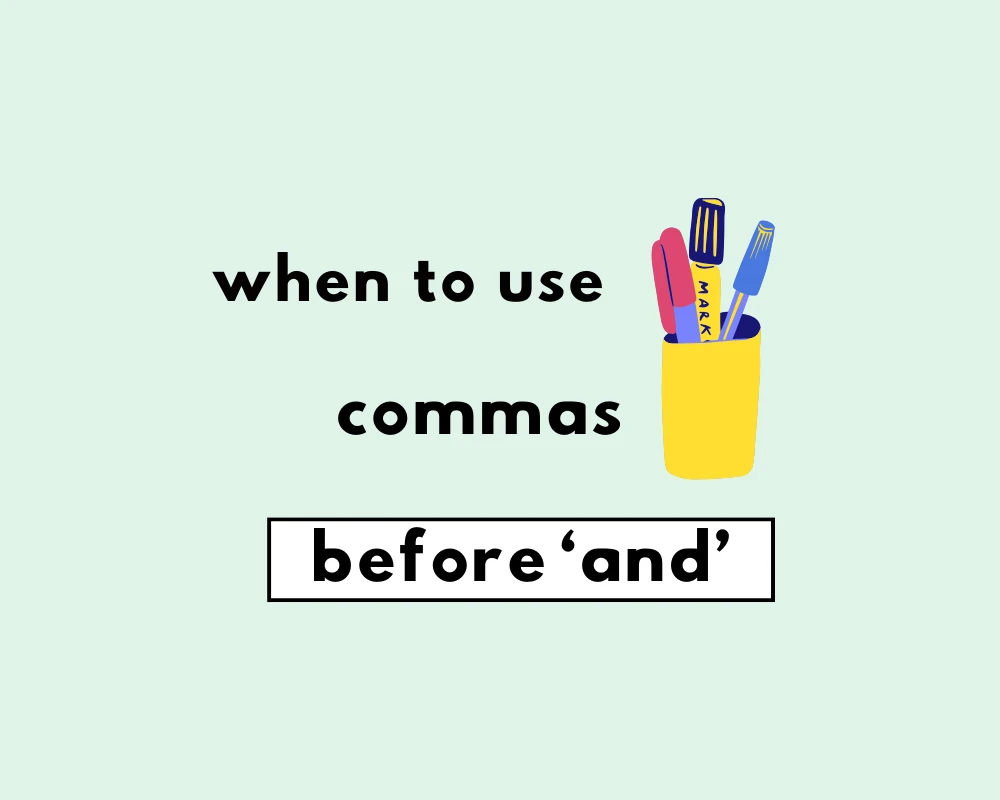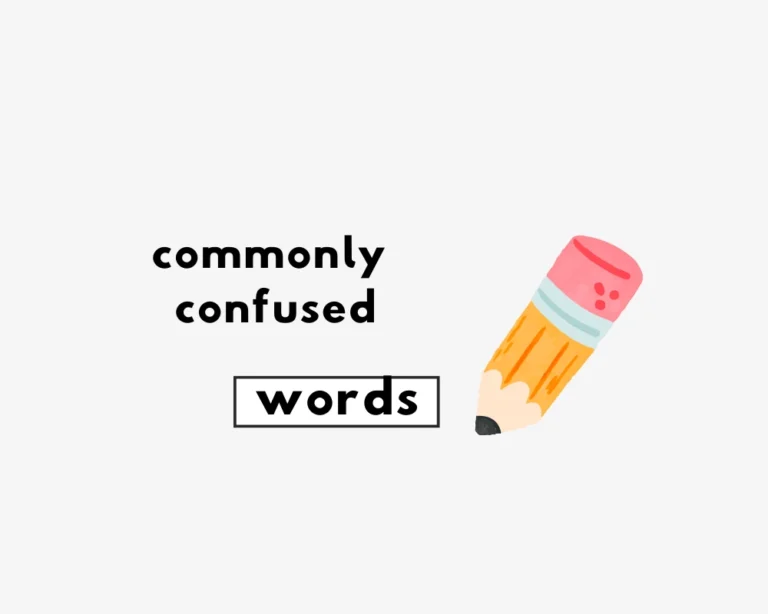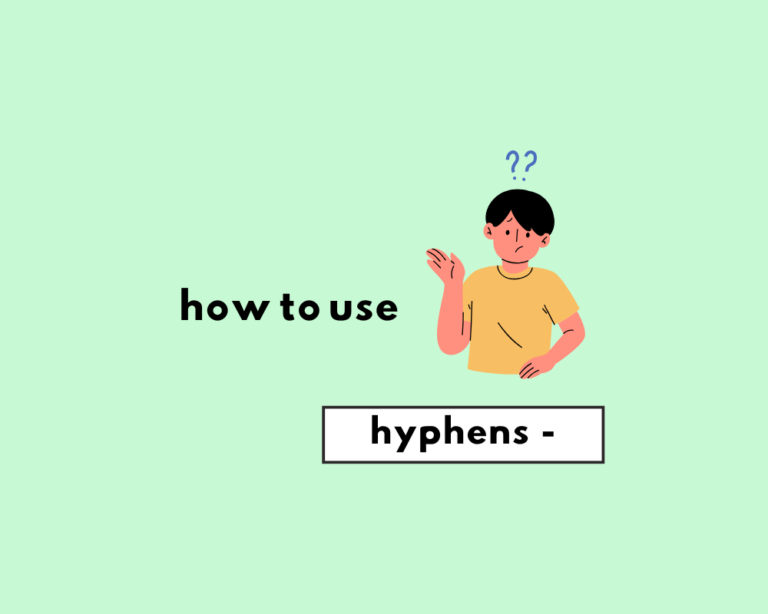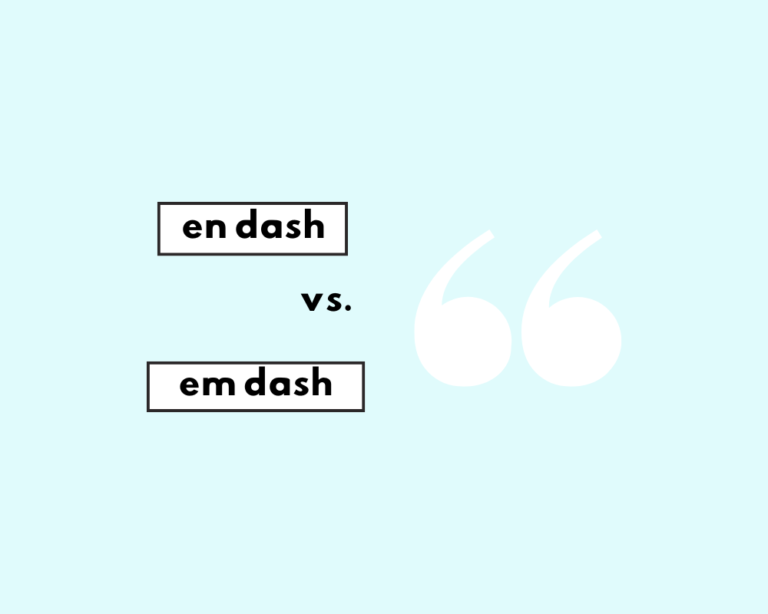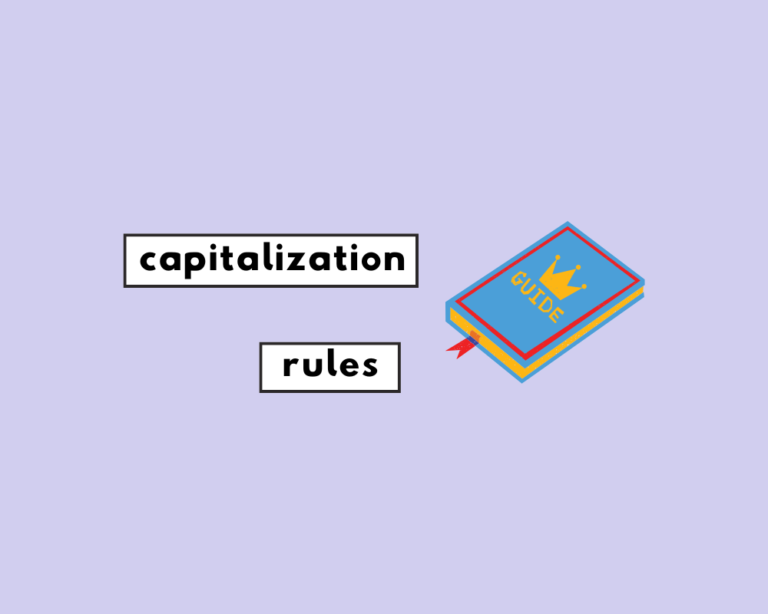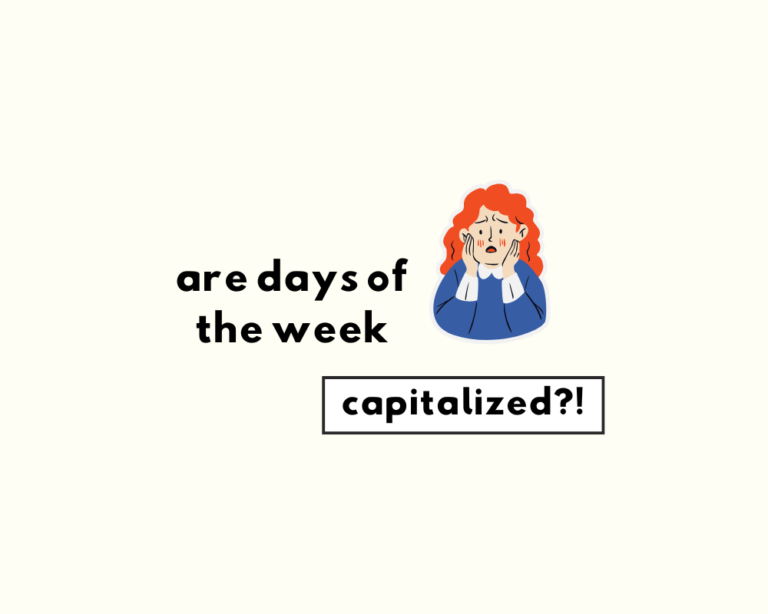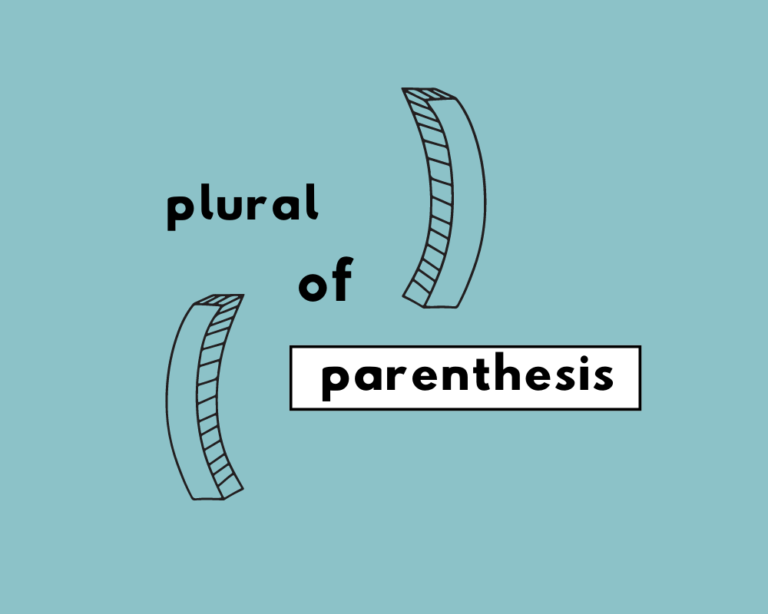When to use a comma before “and”?
Knowing when to use a comma before and can be a tricky rule in gramma to figure out. Read this article to learn when to use commas before and, and the other coordinating conjunctions.
Commas before conjunctions
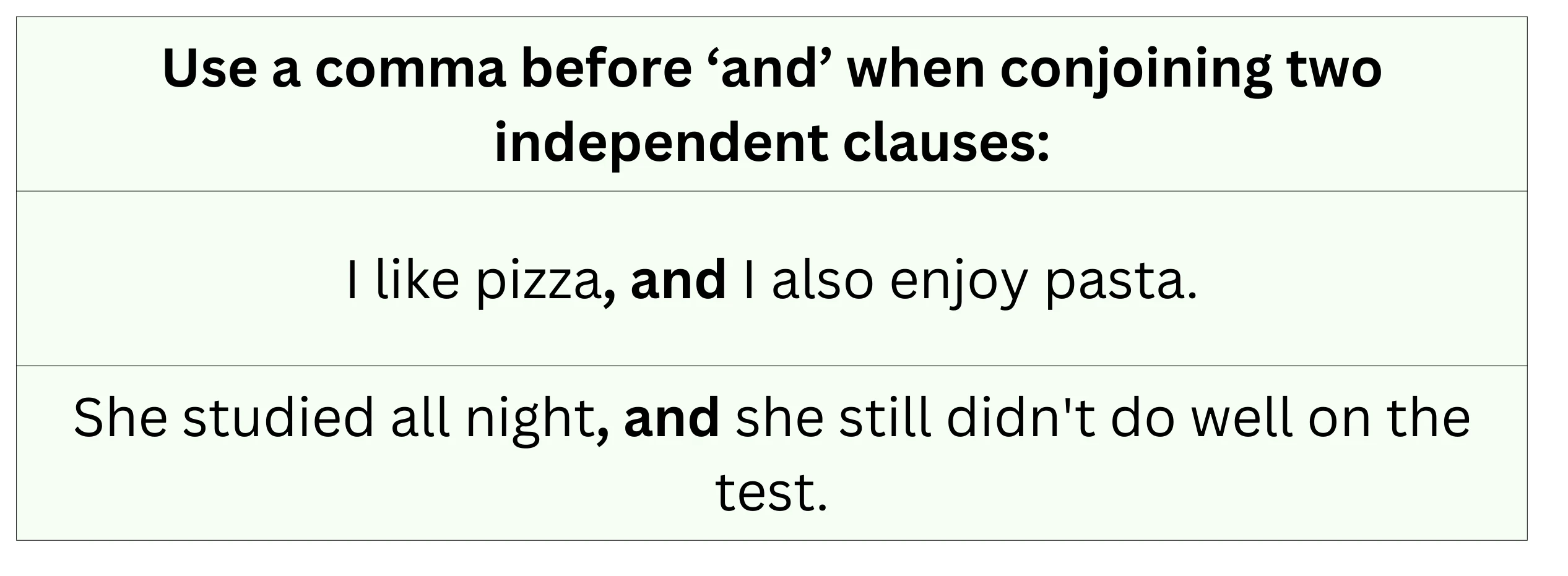
Read these sentences:
I like pizza, and I also enjoy pasta.
She studied all night, and she still didn’t do well on the test.
What can we glean from the above sentences? Though it may not be immediately obvious just from reading them, both are compound sentences. Compound sentences are sentences that have at least two or more independent clauses, and they are joined through a coordinating conjunction (and, but, for, so, etc.). In fact, that sentence (the one you just read) is a compound sentence that correctly uses a comma before ‘and’!
Where to use a comma in compound sentences
The thing about compound sentences is that they combine multiple related ideas into a single, more complex sentence. To effectively do so, we use what are called coordinating conjunctions along with punctuation, specifically the comma.
Grammar rule!
When you join two independent clauses (complete thoughts) with “and” to form a compound sentence, use a comma before the coordinating conjunction “and.”
For example, see the sentence: “I wanted to go to the movies, and my friend wanted to stay home.” We can see that there are two independent clauses because we can separate this compound sentences into two individual sentences:
I wanted to go to the movies.
My friend wanted to stay home.
To combine these clauses into a single, compound sentence, we would use one of the coordinating conjunctions along with a comma.
Grammar rule #2!
When forming compound sentences, make sure that you include one of the coordinating conjunctions along with the proper punctuation. If you omit ‘and’ and just use a comma, this makes a comma splice. For example:
I enjoy reading books, I also like watching movies.
Comma splices are grammatical errors that happen when two independent clauses (complete sentences) are joined incorrectly by using only a comma (as shown in the above sentence).
To use correct grammar and avoid comma splices, independent clauses are joined by a coordinating conjunction (such as “and,” “but,” “or,” “for,” “so,” “yet”) or separated into independent sentences. They can also be connected by a semicolon or colon.
Do you use a comma before “and” in a list?
When you have a list of three or more items in a sentence, you typically use a comma before the “and” that comes before the final item in the list. For example:
I like to eat apples, bananas, and oranges.
The conference will include workshops, presentations, and networking opportunities.
The use of the final comma in a list or series is known as the Oxford comma, also sometimes called a serial comma or final comma. The use of an Oxford comma in a list is often optional, though some style guides do recommend its use. As a rule of thumb, it’s best to stay consistent in writing, so either use the Oxford comma or don’t.
Examples sentences that use a comma before ‘and’
1. I visited Paris, London, and Rome last summer.
2. She enjoys hiking, swimming, and camping, and she plans to do all three activities this weekend.
3. In the morning, I like to have a cup of coffee, and then I read the newspaper.
4. If you finish your chores early, you can go out and play, and if it starts raining, you should come back inside.
5. They waited for the rain to stop, and when it finally did, they continued their hike.
Check out other articles!
- What’s an Oxford comma?
- How to use Commas?
- What’re personal pronouns?
- What’s the difference between they’re, their, and there?
- Whose vs who’s?

